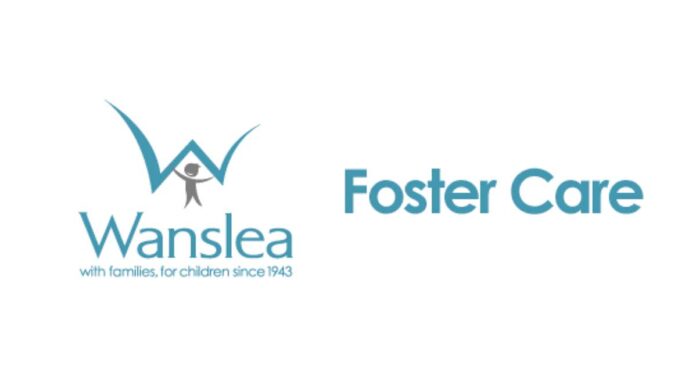An anti-LGBT couple in Perth, Australia is pursuing a legal challenge to serve as foster parents, despite openly acknowledging they would subject an LGBT foster child in their care to conversion therapy.
In January 2017, Byron and Keira Hordyk applied with Wanslea Family Services to serve as foster parents. The Hordyks told Wanslea officials they’re evangelical Christians and believe that identifying as LGBT is sinful. Thus, they would try to change an LGBT child into being straight or cisgender. The couple didn’t specify the type of conversion therapy a prospective LGBT foster-child would be subjected to, according to legal documents.
In September 2017, the Hordyks were denied participation in Wanslea’s foster-care program, on the basis that their home isn’t a safe environment. But the couple is pursuing the matter in the State Administrative Tribunal. Wanslea tried to have the case dismissed as meritless. However, on Feb. 4, Justice Janine Pritchard of the State Administrative Tribunal agreed to hear the case.
A hearing before Pritchard was scheduled to begin this week. Pritchard isn’t expected to render a decision until sometime in February 2021. Additional information on the hearing wasn’t available, as of presstime.
The Hordyks contend Wanslea targeted them for discrimination due to their religious beliefs. The Hordyks have two children and claim that Wanslea could accommodate their religious beliefs by placing a non-LGBT foster child with them. It’s not clear from legal documents how Wanslea would be expected to screen out LGBT children prior to placing a foster child with the Hordyks.
Byron Hordyk told the West Australian newspaper: “We do feel we have been discriminated against. And also we felt that if we were quiet about this and didn’t say anything about it, it could potentially harm or limit any people with the same Christian values as ours from fostering. We hold traditional Christian views on how the Bible teaches us on sexuality and marriage.”
Tricia Murray, chief executive officer of Wanslea, told PGN in an email: “Wanslea’s primary consideration is the best interest of the child. We need to be confident of providing a physically and emotionally safe environment for a child throughout the period of placement.”
The U.S. Supreme Court recently heard oral arguments in Fulton v. City of Philadelphia, a case brought by Catholic Social Services. Philadelphia officials are phasing out CSS’ foster-care contract because the agency refuses to help place foster children with same-sex couples. There are currently 24 children placed in foster and kinship care through CSS’ foster-care program. The children were referred to CSS prior to city officials becoming aware of CSS’ anti-LGBT policies. CSS wants the U.S. Supreme Court to require city officials to refer additional foster children to the agency. A ruling on the case is expected sometime next year.
Jennifer C. Pizer, senior staff attorney for Lambda Legal, sees a connection between the Hordyks’ case and CSS’ case. “The arguments that CSS is making opens the door to many more harms down the road,” Pizer told PGN. “That door should be closed, because the city’s responsibility is to protect the children in its care. CSS is arguing that it has a religious right to do this child-welfare work in a religious manner — and to defy nondiscrimination rules. If the Supreme Court were to say that CSS can put its religious needs ahead of the nondiscrimination rules — then it has taken society down a path of putting religion ahead of the needs of children. And we don’t know how much harm for children the Supreme Court would approve — for instance, so-called reparative or conversion therapy. That’s why these religious-freedom arguments are so dangerous.”
Justin F. Robinette, a local civil-rights attorney, echoed Pizer’s sentiments. “If the legal arguments advanced by CSS in the U.S. Supreme Court case are taken to their logical extreme, then arguably anything goes, until, as the U.S. Supreme Court has previously noted, we each become a law unto ourselves,” Robinette said, in an email. “But this is not how a uniform rule of law can function in a civilized society. CSS seeks to undermine this rule and even openly asks the court to reconsider decades-old precedent in this area — which should be concerning to all LGBTQ+ people, given the current conservative makeup of the U.S. Supreme Court.”
Mary Catherine Roper, deputy legal director of the ACLU of Pennsylvania, issued this statement: “Requiring agencies to accept all qualified foster families and prohibiting foster parents from subjecting LGBTQ kids to damaging conversion therapy both promote the well-being of children in foster care. Those caring for these children — whether foster care agencies charged with finding them families or foster families with whom they may be placed — should not be putting their religious beliefs above the interests of the children in their care.”Shannon P. Minter, legal director of the National Center for Lesbian Rights, issued this statement: “Religious liberty does not include a right to abuse a child. So-called conversion therapy puts LGBTQ minors at risk of serious harms, including dramatically elevated rates of suicide. When the state removes a child from their family and puts them into foster care, the state has a responsibility to protect the child’s health and well-being. Placing an LGBTQ child with a rejecting foster family does just the opposite. “The Hordyks’] story illustrates the importance of the Fulton case currently pending before the U.S. Supreme Court — which poses the question of whether a federally-funded [foster care] agency can discriminate against same-sex couples. Depending on how the Court rules, it could open the door to foster families in the U.S. claiming a similar right to invoke religious liberty as a justification for placing a foster child in conversion therapy. While religious liberty is important, it is never a legitimate justification for inflicting serious harms on another person or persons. However the Court rules in Fulton, it is critical that the Court recognize that limiting principle.”
